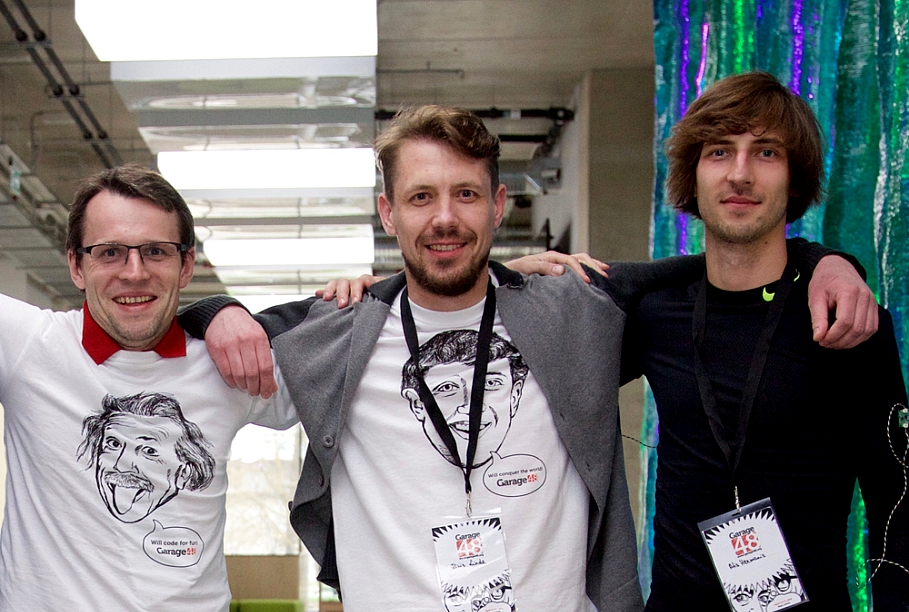Stock options give employees the right to buy company shares in future at a price set at the time of allocation. It is not obligatory and employees can choose not to exercise their right to buy. However, it means that as the company grows and the value of its shares increases, employees can purchase shares at the original price and profit from the increase in share price. This opportunity was introduced in Latvia in 2020.
Stock options are a globally used tool for startups to attract top talent despite not being able to compete with large companies on salary. Internationally, Latvia’s regulation has been recognized as one of the best in the world.
Stock options are usually granted after the employee passes the probation period. However, it is up to each individual business to decide whether or not to make dividend payouts for stock options. Normally, dividends are paid on shares. However, HackMotion decided to pay dividends to stock option holders. This time, dividends were received by stock option holders who had worked for the company for at least one year. The maximum number of stock options for each employee can be obtained over a four-year period.
“Yes, maybe the total paid amount isn’t very large yet, but I want to stress that this is just the beginning. It’s important for us to show our employees that we keep our promises. Every effort by every team member is valued at HackMotion. At the same time, employees need to understand that every individual contribution brings the company closer to its goals,” says HackMotion founder Atis Hermanis.
HackMotion’s turnover increased by 160%, reaching EUR 7.3 million in 2024. Profits rose by 476%, reaching EUR 2.2 million.
Hermanis notes that HackMotion has found a way to achieve both rapid growth and profitability. As he explains, “This enables us to take care of our employees while also investing in development. We’ve never raised external investment and currently finance our growth entirely from our own resources. I won’t hide the fact that there is investor interest, but for now we’re following our own path. We plan to significantly grow our team, and there are already several open positions. We also plan to significantly increase our turnover to offer even better salaries to our employees soon. HackMotion has ambitious plans that only the best employees can help us achieve.”
Several vacancies are currently listed on the company’s website, and the plan is to add at least one new team member per month until the end of the year. Hermanis reveals that the biggest challenge in scaling the team is finding people with the right cultural fit.
“It’s important to us that potential colleagues genuinely want to build useful things. By that, we mean a willingness and eagerness to learn and work on things that truly provide value to our users. If that mindset is there, our experience shows that practical skills can be quickly learned or improved,” says Hermanis.
HackMotion was launched in 2017. Its goal is to create products that help people learn physical activities faster and in a more engaging way. The company accomplishes this with the help of wearable sensors that measure motion, which is then analysed to provide feedback. That feedback might be a number on a screen, a graph, a 3D model, or a sound signal. The company’s first product is for golf—a wearable device that analyses a user’s movements and integrates with software resembling a virtual coach.
“From day one, we also planned to offer products for other sports. But the pace of our growth, financial results, and future potential have led us to focus on the golf industry for now. We’ve found that having a specific focus helps us achieve better results,” explains Hermanis.
The tendency to constantly think about business development is characteristic of startups. But now, with a clear mind, Hermanis believes that any niche can be a massive market on a global scale. If the company manages to reach just a few per cent of amateur golfers worldwide, HackMotion could become one of Latvia’s largest companies.
In its early days, the company attracted various support instruments. HackMotion received the Atspēriens grant from Riga City Council and Swedbank. It participated in one of Estonia’s first hardware business support programmes, Prototron, and received funding from Imprimatur Capital. In 2020, HackMotion won the Latvian-American Innovation Award.
Select text and press Ctrl+Enter to send a suggested correction to the editor
Select text and press Report a mistake to send a suggested correction to the editor
Tell us about a mistake
